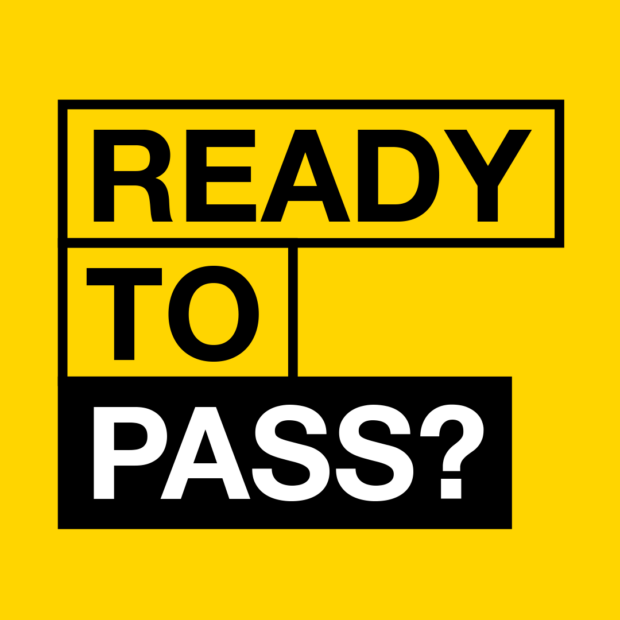
As most you will know if you’re signed up to receive our email alerts, I’ve taken over from Mark Magee as your Registrar. I’m looking forward to working with you all and continuing to make our roads some of the safest in the world.
I joined the Driving Standards Agency (as it was then) in 2004 and have worked in Information Assurance, Policy, and Communications before becoming Deputy CBT Register Manager in 2012 and taking over as Deputy ADI Registrar in 2014.
I wanted to give you some information on why instructors might fail their standards check, so you can better prepare yourself for your own standards check.
Working to the national standard
During your standards check, your examiner will be looking for evidence that you meet the national standards for driver and rider training.
You’ll be marked on 17 areas of competence that are grouped into 3 categories:
- lesson planning
- risk management
- teaching and learning skills
The 17 areas of competence are listed in the ADI standards check form, which the examiner will assess during your check. Look at these before you take your standards check, so you know what the examiner will be assessing.
Analysing standards check data
The standards check replaced the old ADI check test on 7 April 2014. After it had been running for 3 months, we analysed the results to understand which areas most people were failing on, so that we could help people focus their training in those areas.
We have repeated the exercise this year, analysing data from over 2,000 standards checks.
The top 5 reasons
Our latest analysis shows the top 5 areas where instructors fail to demonstrate competence are where they haven’t:
- adapted the lesson plan, when appropriate, to help the pupil work towards their learning goals
- taught the lesson in a style suited to the pupil’s learning style and current ability
- encouraged the pupil to analyse problems and take responsibility for their learning
- given the pupil appropriate and timely feedback during the session
- given enough feedback to help the pupil understand any potentially safety-critical incidents
Lesson planning
You need to show you can adapt your lesson plan, where appropriate, to help your pupil work towards their learning goals.
You shouldn’t stick to a planned lesson because the needs of your pupil might change throughout the lesson and it’s important you can adapt to that.
Teaching and learning strategies
You need to be able to show you can teach your pupil in a style that’s suited for them. This means using methods that work best for them. For example, when giving verbal directions, your pupil might find it easier if you referred to left and right as ‘my side’ or ‘your side’.
It’s important you give your pupil appropriate and timely feedback rather than giving it all at the end of the lesson. Having regular discussions throughout the lesson helps your pupil understand what they might have done wrong.
You should encourage your pupil to analyse problems and take responsibility for their own learning. For example, if your pupil forgot to check their blind spot before pulling out, you might:
- ask them if they know what they did wrong
- explain why they need to make sure they check their blind spots next time
Risk management
Another area instructors commonly fail on is not giving pupils enough feedback on any potentially dangerous situations.
As well as providing your pupil with timely and appropriate feedback, it’s important that if they make any serious or dangerous faults they know what they’ve done and why it’s dangerous.
It’s up to you to make sure they understand this, so they don’t make the same mistake again.
At the end of the test
At the end of the standards check your examiner will give you feedback about any areas where you need to develop. You can refer to the national standard for driver and rider training to help you understand what you could be doing differently.
If you fail the standards check, the examiner will recommend that you seek further development from an instructor trainer.
Make sure you're signed up for email alerts, or follow us on Twitter and Facebook for the latest updates about the service.

11 comments
Comment by Simon hills posted on
Thank you very much for this information at least I don't feel it's all up to me the hardest part I find is that I do this on my lessons but when I seem to have a check test I stopped doing some of these things thank you for the help
Comment by Steve griffiths posted on
If we fail a standards check should it not be up to you at the DVSA to help us. We pay the DVSA to be on your register but then you tell us to go find an instructor trainer, surely if we are failing your test then you should give us the remidal training to put us back on track, if not what are we paying the DVSA for?
Comment by Jane Taylor posted on
Excellent information - will be used in the new booklet we are preparing. It never ceases to amaze me how many ADIs go for their appointment completely unprepared and then wonder why they fail.
Comment by A Hill posted on
Instructors would not fail their check test if they would just treat it as another lesson and do what they normally do and not put an act on.
The problem is were they given the correct training in the first place.
Comment by Tony Mihill posted on
one of the best articles the DVSA have put out in a long time and full of information that can be used. Jane Taylor you are correct ADi's are not prepared enough and do not look at what themselves anywhere near as much as they should. Top Tip guys is to use a reflective log it helps with the lesson planning.
Comment by Phil Lock posted on
Excellent information given. I booked a few lessons with a qualified trainer before my check test and it helped me understand exactly what was needed from me for passing it.
Comment by MAUREEN WILSON posted on
Very informative and helpful
Thank you
Comment by M Marcus posted on
Could we have a similar subject for motorcycle instructors? It seems that every time we get assessed the DVSA have changed the way they wasnt is to do things but don't tell us. We are supposed to provide Compulsory BASIC training, but our DVSA overwatch seem to treat us as of we should be providing advanced training.
We should be teaching them how to keep themselves safe on the road, Not trying to ascertain whether or not they should put in a lifesaver check - they have enough to think about if it's their first time on the roads.
Comment by Kanchan Dhokia posted on
Very useful information and I don't feel alone as a self employed because I know you are here to support me?
I appreciate it very much . Thank you
Comment by Danny Gibson posted on
Very informative, I have more understanding of what's required. Could you add an example of what's expected to close the lesson at the end of the hour lesson or check test please
Comment by Naz Khalid posted on
Very informative..Iv just recently had my standards check and although I got through I found the examiners comments very useful:
1) Every mistake needs to be pointed out
2) More Q & A
3) Route needs to be well planned